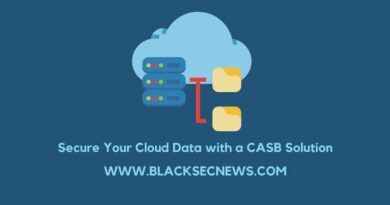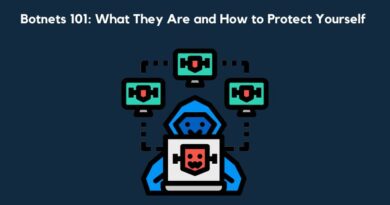State-Sponsored Malware Projects | A Look Inside
It’s no secret that hackers, criminals, and state-sponsored organizations have been targeting individuals, companies, and governments with malicious software for years. But what is state-sponsored malware? And why should you be concerned? State-sponsored malware refers to malicious software that has been specifically designed or commissioned by a government or other state actor. These types of viruses can have a devastating impact on both individuals and organizations, as they are often used to spy on targets and steal confidential information. In this article, we will explore the top 6 state-sponsored viruses you need to know about.
Stuxnet
Perhaps one of the most famous state-sponsored viruses is Stuxnet, which was first discovered in 2010. It was believed that this virus was created jointly by Israel and the United States in order to target Iran’s nuclear program, specifically its centrifuges used for enriching uranium. The virus did serious damage by altering programming within Iran’s centrifuges, causing them to spin out of control and eventually fail completely.
BlackEnergy
Another infamous state-sponsored virus is BlackEnergy, which was used by Russia against Ukraine in 2015 and 2016. This malicious software targeted energy companies across Europe, including Ukraine’s power grid infrastructure. Not only was it capable of taking down entire systems, but it also contained a backdoor that would allow attackers to access sensitive information from victims’ networks and computers.
Flame
Flame is another example of a powerful state-sponsored attack. Discovered in 2012, this virus was believed to be developed by either Israel or the United States for use against Iran and other Middle Eastern countries. Flame is highly sophisticated; it can spread rapidly through local networks as well as over Wi-Fi connections and even Bluetooth devices such as mobile phones or tablets. It can also log keystrokes, take screenshots, record audio conversations and more without leaving any evidence behind on the infected systems.
Regin
Developed by the NSA in 2014, Regin is a type of advanced persistent threat (APT) designed to target Windows operating systems as well as Linux systems. This virus has been linked with espionage campaigns against several countries including China, Russia, Saudi Arabia and Pakistan.
RevengeRAT
RevengeRAT is a type of Remote Access Tool (RAT) used by nation states for espionage purposes since 2013. Although RevengeRAT appears like other RATs available on the dark web, its sophistication suggests that a government agency may have in-house developed it rather than purchased from a third-party criminal group like many other RATs are acquired from online marketplaces such as Darkode or Blackshades . RevengeRAT can infect Windows operating systems through remote servers hosted on legitimate websites; once installed it can collect system information such as passwords, browsing history, emails, documents files, etc . It can also be used for remote surveillance via webcam capture. RevengeRAT has been linked to numerous cyber espionage campaigns targeting governments around the world from Russia, Syria, China, North Korea, Pakistan, India, Vietnam.
Pegasus
Pegasus malware is a sophisticated piece of surveillance software developed by an Israeli cyber intelligence company, NSO Group. It works by exploiting security vulnerabilities in devices running iOS and Android operating systems. The malicious code is able to remotely control infected devices and access user data without their knowledge or consent. This includes photos, emails, contacts, text messages.
Conclusion
As you can see, there are a few different state-sponsored viruses out there that could potentially affect individuals or organizations if they are not protected properly. It’s important for individuals and organizations alike to remain vigilant when it comes to cybersecurity threats from state actors such as malicious software like these Top 6 State-Sponsored Viruses mentioned above. To protect yourself from these potential threats it’s essential to keep your security software up-to-date and follow best practices when it comes to online safety such as using strong passwords, enabling two factor authentication, backing up data regularly, etc . Understanding how these viruses operate can also help you be better prepared if you do become a victim of one of them. So, take some time now to familiarize yourself with these different viruses so that you can stay safe online!



